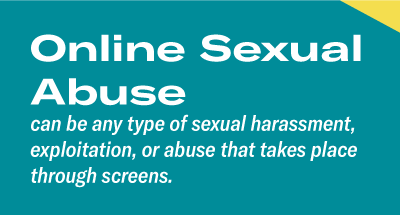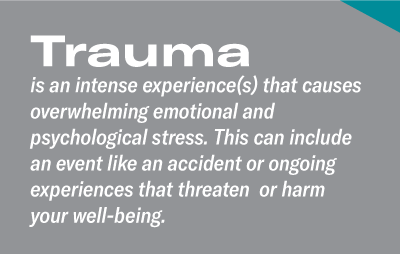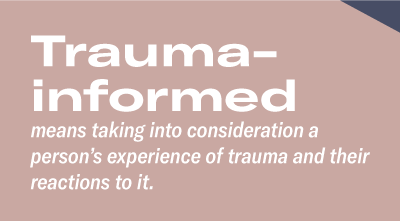

Online sexual abuse can be any type of sexual harassment, exploitation, or abuse that takes place through screens.
Forms of online sexual harassment or abuse:
Just because these forms of sexual abuse take place behind a screen doesn’t make their impact on the victim any less real. While some of these behaviors are crimes, particularly any that involve sexual abuse of children, others are just as harmful. Additionally, as images of abuse could be reshared and recirculated on the internet, there is an added layer of revictimization.

Trauma is an intense experience(s) that causes overwhelming emotional and psychological stress. This can include an event like an accident or ongoing experiences that threaten or harm your well-being.
Each person reacts to traumatic experiences in different ways in the immediate aftermath and long term. You may feel guilt, shame, fear, anxiety, sadness, numbness, shock, withdrawal, and alone. You may have trouble sleeping, nightmares, difficulty concentrating, and feelings of being easily startled and on edge.
Many of us may have experienced stress firsthand when we’ve received a disrespectful, de-humanizing, vulgar, or even threatening comment online. Although these experiences are unfortunately all too common in the online world, it does not make them any less harmful. Coping and healing require acknowledging the impact of online sexual abuse without dismissiveness, judgement, or shame.

When building communities — whether online or in-person — it’s important to remember that many people you’re interacting with have probably experienced some form of trauma.
Being trauma-informed means taking into consideration a person’s experience of trauma and their reactions to it.
We can create trauma-informed online spaces by: